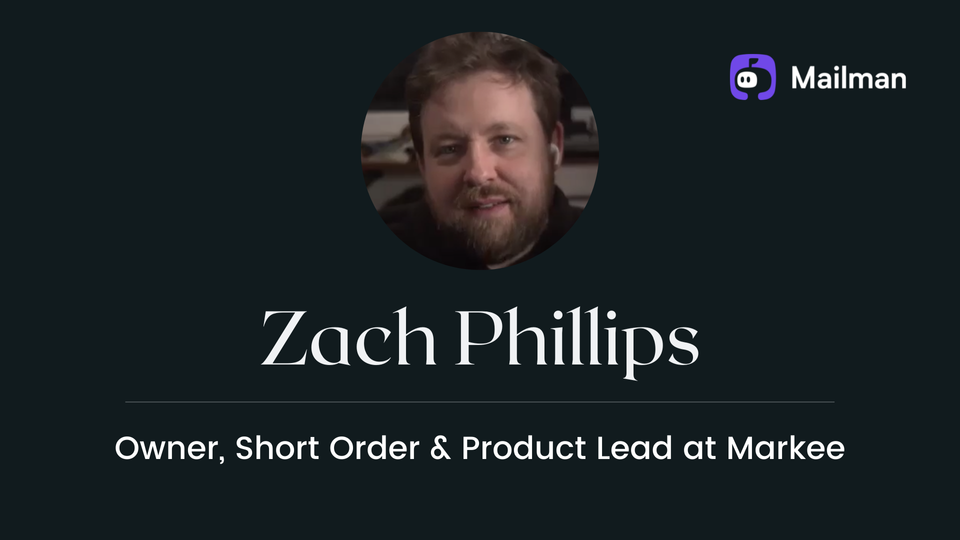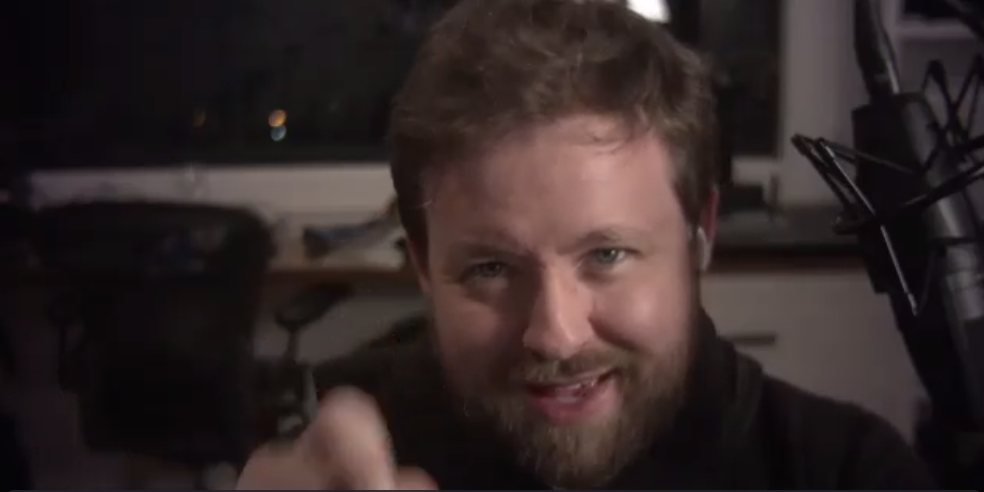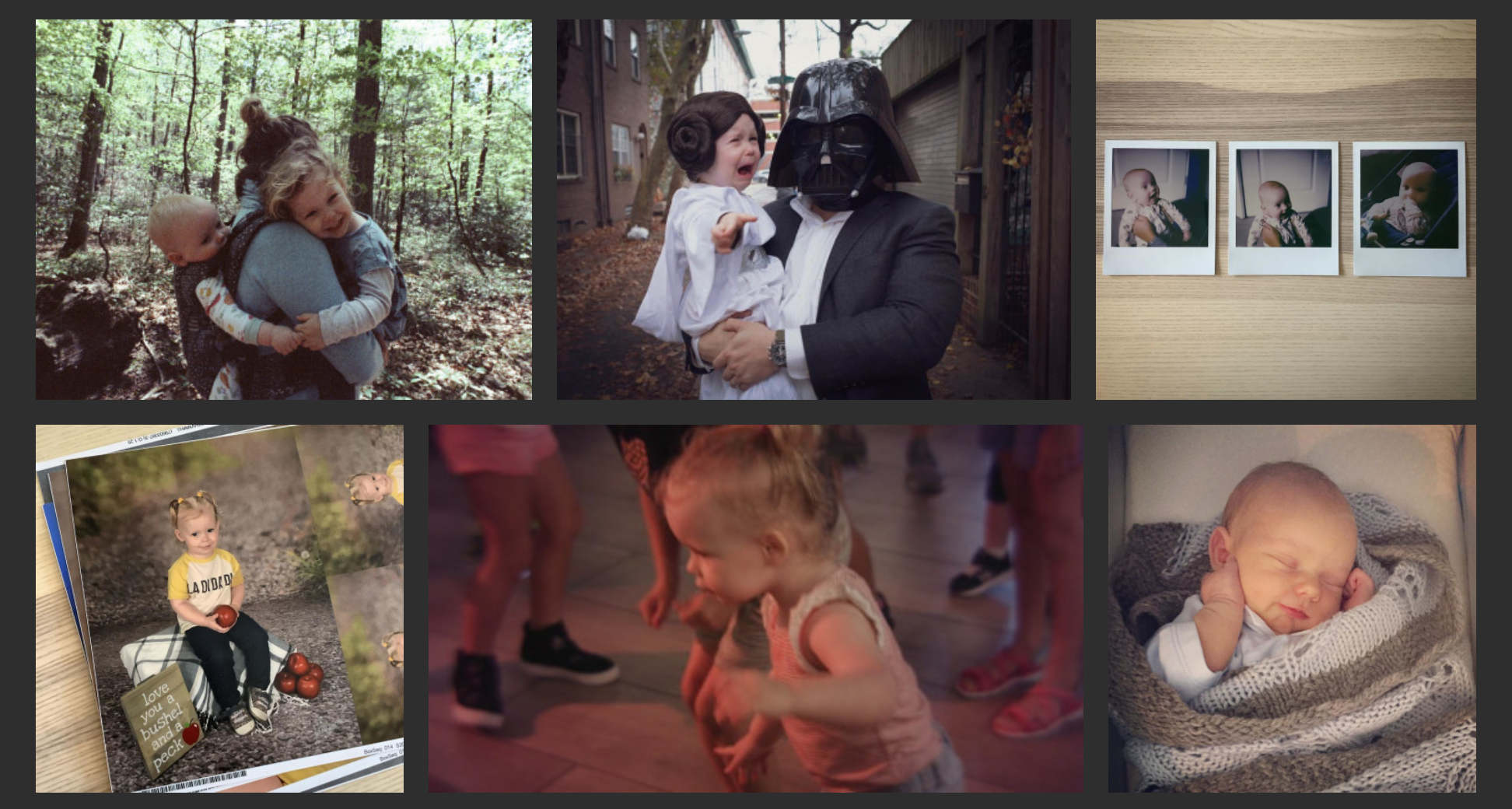How to do many things without overcommitting?

Zach Phillips is a husband, father of 2, runs a film-making studio and an internet startup. Besides all this, he also manages to find time to write every day and has been doing so for the past 40+ days (at the time of interview).
The question is, how does he manage so many things without driving himself crazy?
When I asked Zach, he gave a very self-contradictory answer and explained precisely how it plays out for him. Well, he’s a storyteller; he can grab your attention, hold it, and then lead you to a place he wants to take you.
Here’s what he said in his answer –
“I’m able to do many things because I learned not to over-commit. I know that sounds weird and contradictory. But hear me out, earlier I used to just take on everything and take responsibility for everything. While now, I’m working with great teams, and responsibility is properly apportioned, and I’m able to do what I’m good at. Now I’m not taking up stuff that I used to just commit to doing but had no clue about.
It’s interesting that even though I’m doing a lot of things right now, I’m a lot calmer and less stressed than when I was doing just one thing but kind of half-committed to 30 other things.”
Now you might have to read that again to completely understand what Zach means when he says, “doing many things” by not “over-committing.” Those are two contradictory terms. But, once you get Zach’s answer above, it makes complete sense.
He means he cannot lead everything that he makes himself a part of. He allocates himself to something in just the right quantity to get something done without overburdening himself.
This is not the only “thought technology” (more on that later) Zach uses to manage to be productive doing many things and still finding a good time for his wife and two kids.
Let’s hear more amazing stories from the man himself.
If you like this episode, please take a minute to share it around. Click here to get an auto-populated tweet.
Zach introduces himself

Hi, I’m Zach Phillips. I currently own and run a commercial production company called Short Order Production House in Wilmington. I am a partner and product lead in an open web events platform called Markee. I also have various other projects that aren't good enough to tell you about.
I’m an idea person. I get paid for ideas. It can be an idea for products or commercials to position a product. To me, it’s all about ideas, which is about constantly asking, “how can that thing be different and cooler?”.
I’ve had to implement many things in the past, but I’m not an exemplary implementation or operations person. I like to drill down on details, zero in on one thing, and I get lost in it until an operations person says, “Hey, that’s good, now go do this other thing.” Then I’ll go and zero in on that other thing. I’m that kind of person.
Story of how Zach started
When I graduated from film school, I went on to work for a photo studio for a little while. When I went off on my own, I didn’t have any film equipment or any means of doing the work that I most wanted to do.
At that time, my mother had been a web-designer and a graphic designer. Growing up, I had a lot of familiarity with that work, and I had a laptop. So somebody needed a website, and I said, “I can do that!” for a few years post that I became a Rails developer and CMS implementor. I built some simple apps and tools that did some cool things when I was living in Atlanta.
Over time, I bought the film equipment that I wanted with the money I earned doing these things. I then started doing web and film until, ultimately, I could do just film production.
On doing only one thing
For about five years after I moved to film production entirely, I was running my own commercial film production company. That was the only thing I was doing during that time.
I’ll say that was among the more complicated things I’ve done. It might not seem complex from how a business works perspective. It’s just difficult in terms of the effort it takes to sell one thing, do the work to ship it, and then start the process all over again for a new client.
When your business grows, and you’ve to do more of it for more clients, it’s just not scalable.
I still have that company, and it’s doing well. We’re 15 employees. But today, if I ask myself, “Could I have started something easier?”. I think the answer is yes.
Early days at Short Order
Early on, there were many all-nighters; it won’t be an exaggeration to say I pulled off at least one all-nighter every week. That’s because I was writing the pieces, selling them, communicating with the clients, responsible during production, coordinating everything to get it together, and finally editing the projects.
So I would get into bad situations very frequently; luckily, I didn’t have any kids at that time. I had to learn the hard way. I got my health damaged, did a lot of bad to myself over those first two years. But at every point, when it got way too painful, I learned something from it.
While all this was happening, the clients were happy. But we had no clue what to do with our pricing and what to do with our operations, but eventually, as more and more people started joining, things began to become more organized.
The business people are essential
I struggled to keep things organized in the business, but then we brought in a Chief Operating Officer. He set everything up like a machine. Everyone in the company suddenly knew what they should be working on and their responsibilities.
Now I understand why “the business people” are so important. That was the first time I saw one in action working on my own company, making a huge difference.
Dealing with a mind full of ideas
Earlier, I used to just get to implementing ideas and later realizing nobody is interested in using them. One time I built an entire film production app on top of Airtable; it would manage every part of the film production process. I got it most of the way done, but the problem was that I needed to get the team that would be implementing it to care about it. Nobody cared! So it didn’t end up happening; they just kept doing things, in my opinion, the inefficient and un-modern ways they were using earlier.
Besides that, I also tried to do a couple of software startups during that time but never fully committed and never with the partners I needed to achieve it. Looking back, we were just sitting there knowing this is not going to work. We should have known this is never going to happen.
The approach I’m now taking with the ideas that keep popping in my head is just openly talking about it. That’s my strategy right now. I feel the idea is more valuable if I share it with the world. After all, maybe I attract somebody who wants to do it and wants my help because I offered the initial idea.
Instead of having the anxiety of thinking about these ideas all the time, why not write them down and put them out there. I’ll probably not do them anyway as I’m swamped. But suppose someone else can find that idea worth implementing, and they reach out for a collaboration. In that case, I could easily offer capital investment, or my expertise, or creating a bunch of videos through my production company.
This way, I can contribute but not take a lot of responsibility for running the entire show.
If you like this episode, please take a minute to share it around. Click here to get an auto-populated tweet.
Markee - a team collaboration software
Markee is a team collaboration software we’re building. It’s still in beta, but we’ve got 4-5 people working on it. Recently we raised $600k. The users are happy till now. I am looking forward to showing it to the world very soon.
It’s like a fully branded replacement for slack or discord or any team collaboration software. You can also conduct meetups over there. I’m going to start shouting from the rooftops as soon as Markee is ready for the world to see as we work out a few rough edges that are there right now.
On writing everyday
Recently I’ve started putting 1 hour every day into writing or making some videos. I don’t want to get cocky before I’ve done it for many days, but I’ve been writing every day for 40+ days. This makes me happy. I’ve never been able to deal with all the ideas in my head; now I get to write about it or speak about it in a video.
Before, I just used to get sucked into 1 idea and then another idea, but nothing came out. Now I’m looser in my approach by simply writing about it, and that’s generating all kinds of serendipity for me.
Starting a family
My wife and I got married relatively early in the company (Short-Order), and we had our 1st kid in 2017 and then our 2nd in 2019. So we have a girl and a boy. I’m not very shy about them; I put their pictures on Instagram and Twitter. Maybe I shouldn’t do that, but I do. But they’re a big part of my life.

I’m a photographer, so I like taking pictures, and I’m a film photographer, so I prefer shooting them on film as much as possible.
Balancing two companies and a family
According to my wife, I’m not doing good on that front. But if you ask me, I have a pretty good balance at this point. I’m able to turn off work in a way I was never able to before. When I was two years into the video company, there’s wasn’t a moment I wasn’t thinking of something that was about to collapse and kill us all. That’s how it felt.
Now, my work is much better managed. I do it during the day. This year I’ve been doing it from home the vast majority of the time.
I also use Focusmate. It’s a Pomodoro app that matches you with someone who will hold you accountable at the end of the Pomodoro about the work you were supposed to do. They hold the same accountability to you.
This helps me counter procrastination as I’m allocating a box of time to doing something, and there’s someone to hold me accountable at the end of it.
The good thing about Focusmate is that it connects you to a stranger because, ironically, you feel more obligated to be on time for a stranger than you’d be to someone you already know.
I use the app multiple times a week, a lot of work gets done because of the app.
Of course, I also use Mailman to protect my attention and do productive work without getting distracted by emails.
Zach’s daily routine
I wake up when the babies wake up, which could be anytime from 5 to, if we’re really lucky, 7. But usually, it’s around 6. We get up, we drink our coffee, and then we try to feed breakfast to the kids. I try to get on the Peloton between 7 and 8. I also ride my bike, which is also something I’ve done for 40+ days.
Daycare is right across the street, which is a great thing. We get the kid’s lunches, their coats on, and I drop them at daycare and come back home.
I try not to keep any meetings in the mornings. I like my mornings to go as long as possible until I’ve to be in a meeting. This is not because I don’t like meetings. It’s just that the morning time is my best time to get some deep-focused work done.
Before 1 pm, I’ll write my thread for the day, and if I don’t get to it, I’ll do it in the evening. It usually takes me 30 mins to maybe an hour to get that done.
My afternoons are packed with meetings, I’ll start having meetings at noon or one, and they’ll be one after the other. This will go on till five, and I stop work at 5. After that, I just hang out with my family.
I don’t work into the evenings; I don’t want that in my life anymore. I now believe working long hours has diminishing returns. For I’m doing quality work in the hours I’m working currently.
I used to do 80 hour weeks earlier, but around 60 were not of high quality. So there’s no point in continuing that approach.
Pushing into the creative zone
Everything that’s working for me right now in a way that hasn’t before, that is, I’m finally being prolific and putting things out there, is because I’m NOT pushing into anything.
Any force or any pressure makes me want to check my email. So what I do is, as soon as I feel any pressure on myself, I step back, take a deep breath and let myself do something else. I don’t need to force myself to do things, and when I force myself, it makes me do fewer things.
I trust that everything I need to accomplish a task adequately is automatically there and requires no push or force whatsoever. If there’s a voice in my head that’s constantly shouting, “You better be really good!” it just makes me do worse at it. That annoying voice in your head doesn’t help.
On saying ‘no’
I’ve learned to say ‘no’ a lot better now. There’s this quote that goes, “Saying yes is saying no to everything else.” This means that a ‘no’ is just 1 ‘no.’ But a ‘yes’ equals infinite ‘noes.’
“Saying yes is saying no to everything else.”
If you think about it that way, it’s much better to say ‘no’ to 1 thing than saying ‘no’ to a lot of other things by saying yes.
When I say no to something, I make sure to write about it or talk to someone about it. I feel it’s easier to say ‘no’ and part with it by writing about it than to forever keep thinking about it, “what if that could have been a thing?”.
On saying ‘yes’
Any ‘yes’ has to be based on an unmistakable picture of what the ‘yes’ means. For example, I might get involved with another company, but I’m not going to do that as a leader of that company. Similarly, I’m not going to get involved in managing people; that’s not possible as my meeting schedule is already full.
When I say yes, I look at the possibility of the idea succeeding, but more than that, I look at the collective people coming together to make this idea succeed and who’s going to do it.
I also say yes to things I want to do more of. Like right now, I’m on this podcast. I’m doing this because it’s an opportunity for me to think and talk about my ideas.
On Zach’s fondness for the number “5”
I can’t reason that without saying I’m a little goofy. I have this problem with numbers. I like most numbers, but I like some numbers a lot more than others. Like 5.
5 to me is just the perfect number. I love the shape of it. I count things in fives. Even in my work, I try to bring things down to 5. Five feels enough but not too much!
I don’t like 6 and 9; I just don’t want them around. There’s no reason why but I just don’t like them.
What are Thought Technologies?
Thought technologies are ways to wrestle with your demons. It’s everything from meditation to the concept of an inbox. These are as good as real technologies, but most people aren’t paying attention to them.
There’s an old saying, “If you don’t have a system, then that’s your system.” So you have a system, whether you know it or not. Thought technologies are systems/tools you can use to better your default systems. This is not to say you should get too deep into systems, you can go down a rabbit hole with that, but that won’t serve anything.
People should know about these thought technologies that you can probably use to function in a better, more organized way.
Is storytelling a thought technology?
An individual story can be a thought technology as stories can hold much more meaning in them than just a description cannot. A tale with lessons is much more powerful and memorable than a simple set of rules.
But storytelling in itself is an innate part of human psychology; it’s what separates us from animals.
One extra hour in a day
There are voices in my head that say, “you should work more,” and then there’s another voice that says, “you should spend more time with your family.” Now I want to do all of it, but if I had one extra hour a day, I’d spend it resting. I haven’t learned how to rest well while awake.
Even though I’m much less anxious than I used to be and healthier, I still don’t know how to do leisure. I worked for so many years that I forgot how to do that. I don’t read for pleasure, I don’t watch movies for pleasure, which is sad. So I think I’d devote that time to rest and to learn how to do rest.
Get in touch with Zach
You can follow me on Twitter. If you’re not on Twitter, you can see my blog – that’s where my blog is, and that’s where I am. (Definitely check out his exciting blog!)
Also, do subscribe to my newsletter, where every weekend I send all the things I wrote in the week, some updates, and sometimes, pictures of my kids. They’re cute, I’m biased, but they’re cute.





